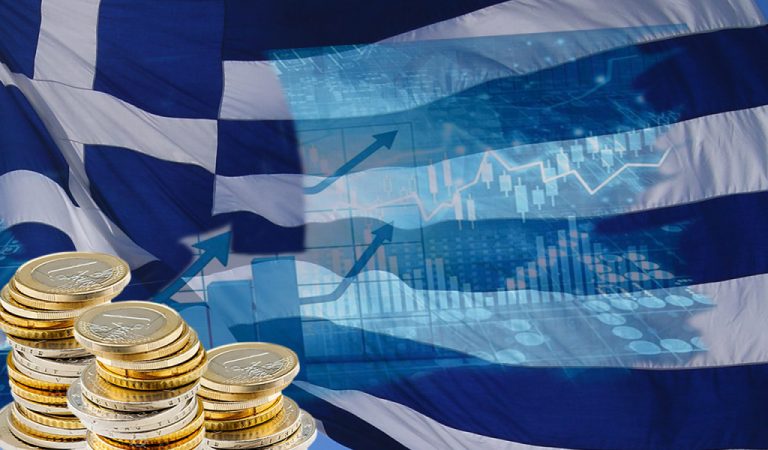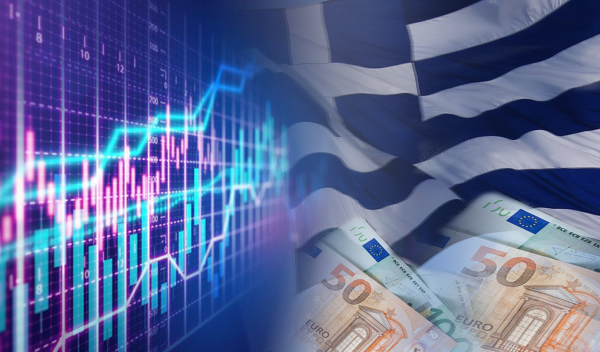
Despite multiple shocks in recent years, including the COVID-19 pandemic and the energy crisis, the Greek economy has demonstrated remarkable resilience, according to a new analysis by Morningstar DBRS.
The report highlights that Greece’s real GDP growth has outperformed the eurozone average every year since 2021, with forecasts suggesting that this trend will continue. According to the analysis, this performance reflects not only a recovery after years of contraction but also structural improvements driven by fiscal and economic adjustments.
Greece’s economic model is now more export- and investment-oriented, relying less on consumption and displaying fewer imbalances compared to the past. In 2023, economic activity expanded by 2.3% year-on-year, while real GDP is expected to grow by over 2% this year, supported by strong private consumption, exports, and rising investment.
Despite uncertainties, the Greek economy is likely to continue outperforming the eurozone this year. This resilience is underpinned by inflows of European Union (EU) funds, robust private consumption, and a strengthened banking sector, the report notes.
However, emerging challenges—including geopolitical risks—could test Greece’s economic stability in the future. To sustain its progress, the country will need to remain vigilant in advancing reforms toward a more diversified and sustainable economic model.
Accelerating structural reforms to boost investment and productivity, while effectively utilizing external capital, will be crucial in addressing Greece’s economic legacy. These efforts will help the country tackle structural challenges and maintain growth beyond the expiration of the EU’s Next Generation funds, the analysis concludes.
Source: tovima.com
Latest News

Easter Sales Performance and the Source of €4–5 Million in Losses
Easter retail sales were relatively weak this year, with the only "real winners" being the livestock farmers who had lambs to sell.

Hotel Foreclosures Continue to Plague Greece’s Islands
A surge in hotel foreclosures across Greece’s islands threatens small tourism businesses, despite booming visitor numbers and record-breaking travel in 2024.

Athens Launches Task Force to Safeguard Historic City Center
The new municipal unit will ensure compliance to zoning laws, curb noise, and address tourist rental issues starting from the Plaka district.

WTTC: Travel & Tourism to Create 4.5M New Jobs in EU by 2035
This year, international visitor spending is set to reach 573 billion euros, up by more than 11% year-on-year

IMF: US Tariffs Shake Global Economy, Outlook Downbeat
IMF slashes global growth forecast to 2.8% as U.S. tariffs create uncertainty and ‘negative supply shock

First Step Towards New Audiovisual Industry Hub in Drama
The project is set to contribute to the further development of Greece’s film industry and establish Drama as an audiovisual hub in the region

Airbnb Greece – Initial CoS Ruling Deems Tax Circular Unlawful
The case reached the Council of State following annulment applications filed by the Panhellenic Federation of Property Owners (POMIDA)

Mitsotakis Unveils €1 Billion Plan for Housing, Pensioners, Public investments
Greek Prime Minister Kyriakos Mitsotakis has announced a new set of economic support measures, worth 1 billion euros, aiming to provide financial relief to citizens.

Alter Ego Ventures Invests in Pioneering Gaming Company ‘Couch Heroes’
Alter Ego Ventures' participation in the share capital of Couch Heroes marks yet another investment by the Alter Ego Media Group in innovative companies with a focus on technology.

Corruption Still Plagues Greece’s Driving Tests
While traffic accidents continue to claim lives on Greek roads daily, irregularities and under-the-table dealings in the training and testing of new drivers remain disturbingly widespread













![Accor: Η βιωσιμότητα «κλειδί» για την ανάπτυξη και ανθεκτικότητα του ελληνικού τουρισμού [έρευνα]](https://www.ot.gr/wp-content/uploads/2025/04/thumbnail-90x90.jpg)

























![Accor: Η βιωσιμότητα «κλειδί» για την ανάπτυξη και ανθεκτικότητα του ελληνικού τουρισμού [έρευνα]](https://www.ot.gr/wp-content/uploads/2025/04/thumbnail-600x400.jpg)


 Αριθμός Πιστοποίησης
Αριθμός Πιστοποίησης